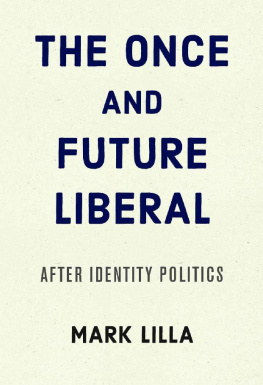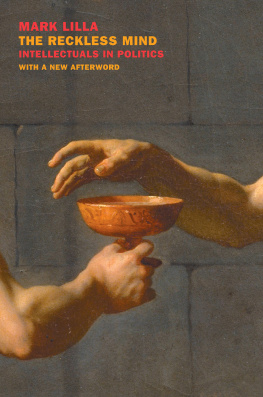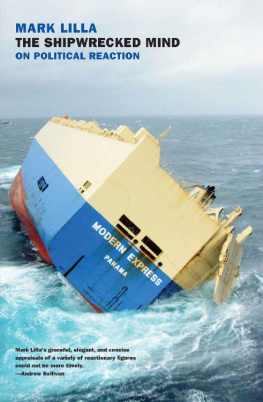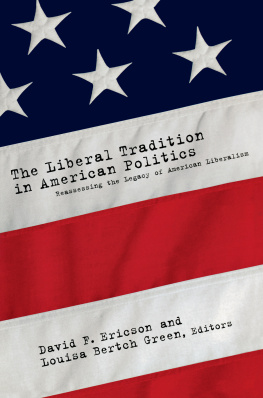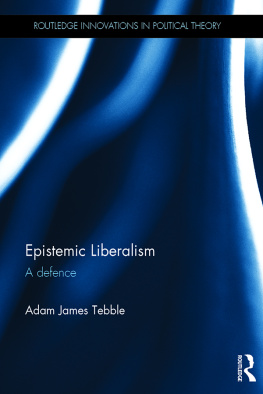We must understand that there is a difference between being a party that cares about labor and being a labor party. There is a difference between being a party that cares about women and being the womens party. And we can and we must be a party that cares about minorities without becoming a minority party. We are citizens first.
Senator Edward M. Kennedy (1985)
Contents
Donald J. Trump is president of the United States. And his surprise victory has finally energized American liberals and progressives. They are busy organizing what they call a resistance to everything he stands for. They are networking, marching, showing up at town hall meetings, and flooding the phone lines of their congressional representatives. There is already excited talk about winning back House and Senate seats in midterm elections, and the presidency three years down the road. The search for candidates has begun and no doubt some staffers are already dreaming of the offices they will occupy in the West Wing of the White House.
If only American politics were so simple. Lose the flag, capture the flag. We liberals have played this game before and sometimes won. We have had Democratic presidents in four of the ten terms that followed Ronald Reagans victory in 1980, and there were significant policy victories during the administrations of Bill Clinton and Barack Obama. But scratch below the surface of presidential elections, which seem to follow their own historical rhythm, and things turn very dark, very fast.
Clinton and Obama were elected and then reelected with messages that were long on hope and change. But they were stymied at almost every turn by self-confident Republicans in Congress, a right-leaning Supreme Court, and a steadily growing majority of state governments in Republican hands. Those presidents electoral victories did nothing to stop or even slow the rightward drift of American public opinion. In fact, thanks in large part to the shameless and massively influential right-wing media complex, the longer they were in office the more the public held liberalism in contempt as a political doctrine. And now we face far right populist websites mixing half-truths, lies, conspiracy theories, and fabrications into a toxic brew eagerly swallowed by the credulous, the angry, and the menacing. Liberals have become Americas ideological third party, lagging behind self-declared independents and conservatives, even among young voters and certain minority groups. We have been repudiated in no uncertain terms. Donald Trump the man is, frankly, not the greatest of our worries. And if we dont look beyond him there is very little hope for us.
American liberalism in the twenty-first century is in crisis: a crisis of imagination and ambition on our side, a crisis of attachment and trust on the side of the wider public. The majority of Americans have made it abundantly clear that they no longer respond to whatever larger message we have been conveying over the past decades. And even when they vote for our candidates, they are increasingly hostile to the way we speak and write (especially about them), the way we argue, the way we campaign, the way we govern. Abraham Lincolns famous remark is timely once again:
Public sentiment is everything. With it, nothing can fail; against it, nothing can succeed. Whoever molds public sentiment goes deeper than he who enacts statutes, or pronounces judicial decisions.
The American right understands in its bones this basic law of democratic politics, which is why it has effectively controlled the political agenda of this country for two generations. Liberals have for just as long refused to accept it. Like Bartleby the Scrivener, they prefer not to. The question is, Why? Why would those who claim to speak for the great American demos be so indifferent to stirring its feelings and gaining its trust? This is the question I would like to explore.
I write as a frustrated American liberal. My frustration is not directed at Trumps voters, or those who explicitly supported the rise of this populist demagogue, or those in the press who greased the wheels of his campaign, or those craven Washingtonians who have fallen into line behind him. Others will take them on. My frustration has its source in an ideology that for decades has prevented liberals from developing an ambitious vision of America and its future that would inspire citizens of every walk of life and in every region of the country. A vision that would orient the Democratic Party and help it win elections and occupy our political institutions over the long term, so we might effect the changes we want and America needs. Liberals bring many things to electoral contests: values, commitment, policy proposals. What they dont bring is an image of what our shared way of life might be. Ever since the election of Ronald Reagan the American right has offered one. And it is this imagenot money, not false advertising, not fearmongering, not racismthat has been the ultimate source of its strength. In the contest for the American imagination, liberals have abdicated.
The Once and Future Liberal is the story of that abdication. Its argument can be briefly summarized. I suggest that American political history over the past century can be usefully divided into two dispensations, to invoke the Christian theological term. The first, the Roosevelt Dispensation, stretched from the era of the New Deal to the era of the civil rights movement and the Great Society in the 1960s, and then exhausted itself in the 1970s. The second, the Reagan Dispensation, began in 1980 and is now being brought to a close by an opportunistic, unprincipled populist. Each dispensation brought with it an inspiring image of Americas destiny and a distinctive catechism of doctrines that set the terms of political debate. The Roosevelt Dispensation pictured an America where citizens were involved in a collective enterprise to guard one another against risk, hardship, and the denial of fundamental rights. Its watchwords were solidarity, opportunity, and public duty. The Reagan Dispensation pictured a more individualistic America where families and small communities and businesses would flourish once freed from the shackles of the state. Its watchwords were self-reliance and minimal government. The first dispensation was political, the second anti-political.
The great liberal abdication began during the Reagan years. With the end of the Roosevelt Dispensation and the rise of a unified and ambitious right, American liberals faced a serious challenge: to develop a fresh political vision of the countrys shared destiny, adapted to the new realities of American society and chastened by the failures of old approaches. Liberals failed to do this. Instead they threw themselves into the movement politics of identity, losing a sense of what we share as citizens and what binds us as a nation. An image for Roosevelt liberalism and the unions that supported it was that of two hands shaking. A recurring image of identity liberalism is that of a prism refracting a single beam of light into its constituent colors, producing a rainbow. This says it all.
The politics of identity is nothing new, certainly on the American right. What was astonishing during the Reagan Dispensation was the development of a left-wing version of it that became the de facto creed of two generations of liberal politicians, professors, schoolteachers, journalists, movement activists, and officials of the Democratic Party. This was not a historical accident. For the fascination, and then obsession, with identity did not challenge the fundamental principle of Reaganism. It reinforced that principle: individualism. Identity politics on the left was at first about large classes of peopleAfrican-Americans, womenseeking to redress major historical wrongs by mobilizing and then working through our political institutions to secure their rights. But by the 1980s it had given way to a pseudo-politics of self-regard and increasingly narrow and exclusionary self-definition that is now cultivated in our colleges and universities. The main result has been to turn young people back onto themselves, rather than turning them outward toward the wider world. It has left them unprepared to think about the common good and what must be done practically to secure itespecially the hard and unglamorous task of persuading people very different from themselves to join a common effort. Every advance of liberal

